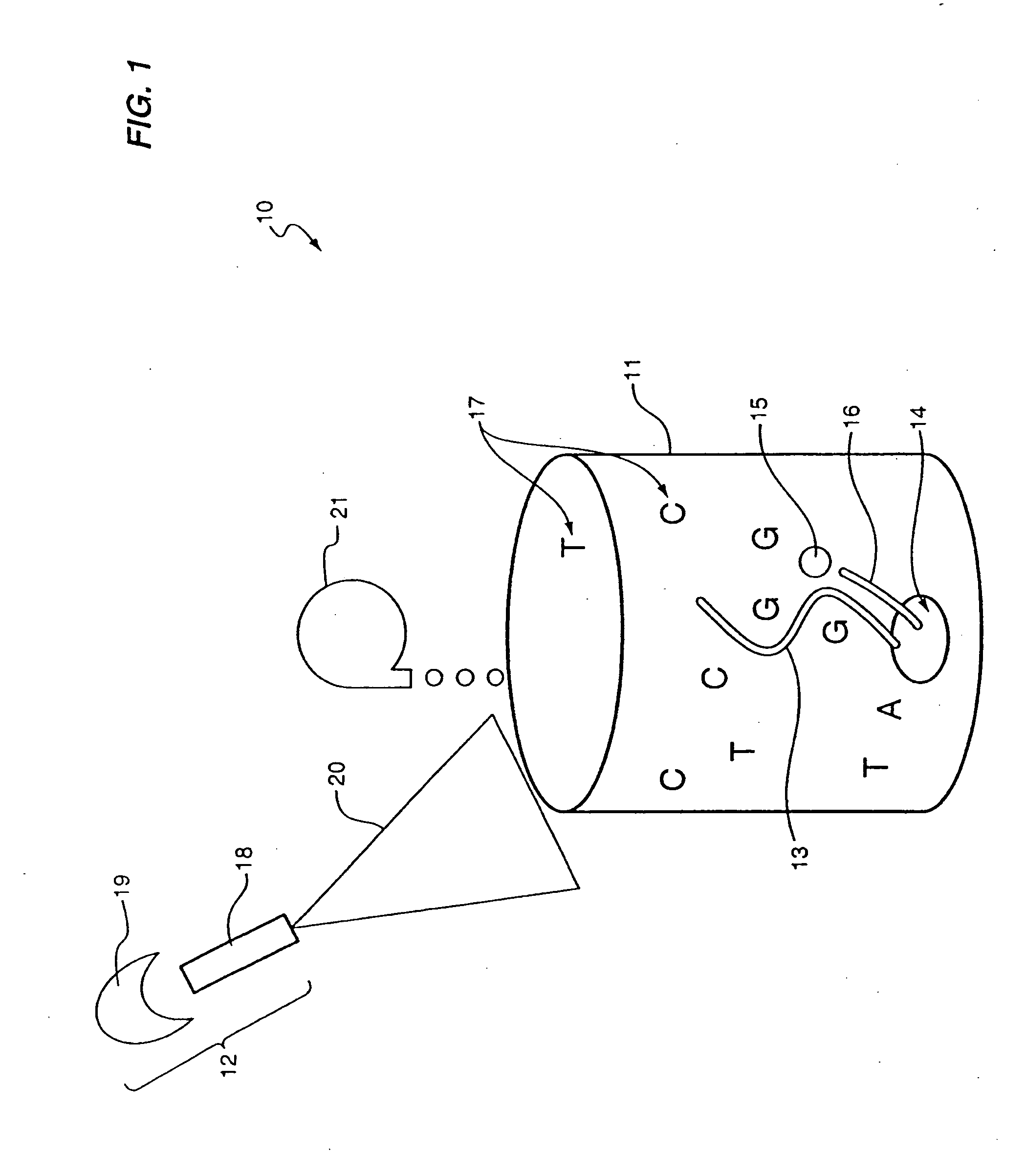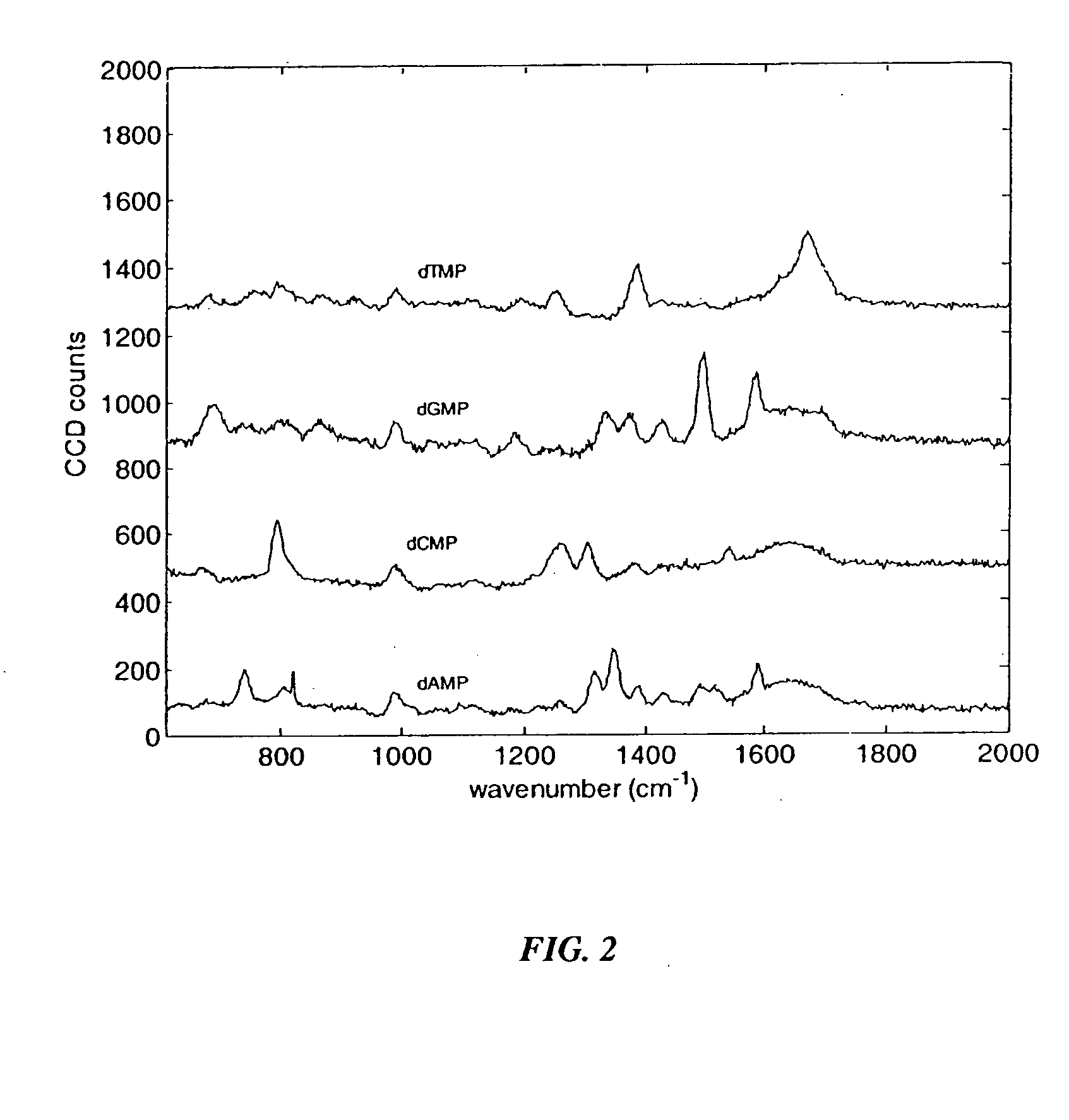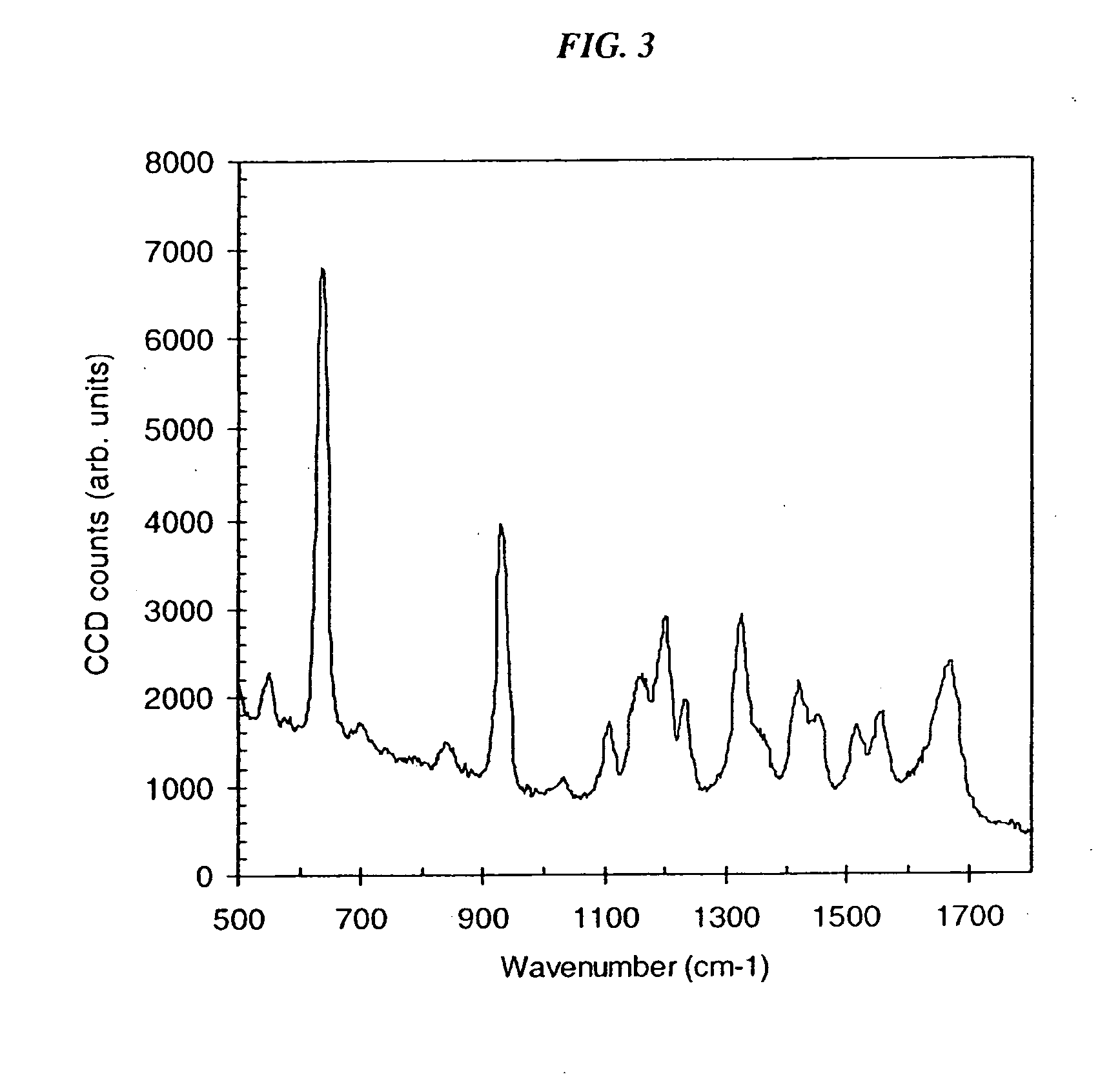Nucleic acid sequencing by Raman monitoring of uptake of nucleotides during molecular replication
a technology of nucleotide uptake and nucleic acid sequencing, applied in the field of molecular biology and genomics, can solve the problems of high cost, inefficiency and time-consuming, laborious process,
- Summary
- Abstract
- Description
- Claims
- Application Information
AI Technical Summary
Problems solved by technology
Method used
Image
Examples
example 1
Raman Detection of Nucleotides
[0108] Methods and Apparatus
[0109] In a non-limiting example, the excitation beam of a Raman detection unit was generated by a titanium:sapphire laser (Mira by Coherent) at a near-infrared wavelength (750˜950 nm) or a gallium aluminum arsenide diode laser (PI-ECL series by Process Instruments) at 785 nm or 830 nm. Pulsed laser beams or continuous beams were used. The excitation beam was passed through a dichroic mirror (holographic notch filter by Kaiser Optical or a dichromatic interference filter by Chroma or Omega Optical) into a collinear geometry with the collected beam. The transmitted beam passed through a microscope objective (Nikon LU series), and was focused onto the Raman active substrate where target analytes (nucleotides or purine or pyrimidine bases) were located.
[0110] The Raman scattered light from the analytes was collected by the same microscope objective, and passed the dichroic mirror to the Raman detector. The Raman detector incl...
example 2
Raman Emission Spectra of Nucleotides, Purines and Pyrimidines
[0116] The Raman emission spectra of various analytes of interest were obtained using the protocol of Example 1, with the indicated modifications. FIG. 2 shows the Raman emission spectra of a 100 mM solution of each of the four nucleoside monophosphates, in the absence of surface enhancement and without Raman labels. No LiCl was added to the solution. A 10 second data collection time was used. Excitation occurred at 514 nm. Lower concentrations of nucleotides can be detected with longer collection times, added electrolytes and / or surface enhancement. For each of the following figures, a 785 nm excitation wavelength was used. As shown in FIG. 2, the unenhanced Raman spectra showed characteristic emission peaks for each of the four unlabeled nucleoside monophosphates.
[0117]FIG. 3 shows the SERS spectrum of a 1 nm solution of guanine, in the presence of LiCl and silver nanoparticles. Guanine was obtained from dGMP by acid ...
example 3
SERS Detection of Nucleotides and Amplification Products
[0123] Silver Nanoparticle Formation
[0124] Silver nanoparticles used for SERS detection were produced according to Lee and Meisel (1982). Eighteen milligrams of AgNO3 were dissolved in 100 mL (milliliters) of distilled water and heated to boiling. Ten mL of a 1% sodium citrate solution was added drop-wise to the AgNO3 solution over a 10 min period. The solution was kept boiling for another hour. The resulting silver colloid solution was cooled and stored.
[0125] SERS Detection of Adenine
[0126] The Raman detection system was as disclosed in Example 1. One mL of silver colloid solution was diluted with 2 mL of distilled water. The diluted silver colloid solution (160 μL) (microliters) was mixed with 20 μL of a 10 nM (nanomolar) adenine solution and 40 μL of LiCl (0.5 molar) on an aluminum tray. The LiCl acted as a Raman enhancing agent for adenine. The final concentration of adenine in the sample was 0.9 nM, in a detection vol...
PUM
| Property | Measurement | Unit |
|---|---|---|
| diameter | aaaaa | aaaaa |
| diameter | aaaaa | aaaaa |
| diameter | aaaaa | aaaaa |
Abstract
Description
Claims
Application Information
 Login to View More
Login to View More - R&D
- Intellectual Property
- Life Sciences
- Materials
- Tech Scout
- Unparalleled Data Quality
- Higher Quality Content
- 60% Fewer Hallucinations
Browse by: Latest US Patents, China's latest patents, Technical Efficacy Thesaurus, Application Domain, Technology Topic, Popular Technical Reports.
© 2025 PatSnap. All rights reserved.Legal|Privacy policy|Modern Slavery Act Transparency Statement|Sitemap|About US| Contact US: help@patsnap.com



